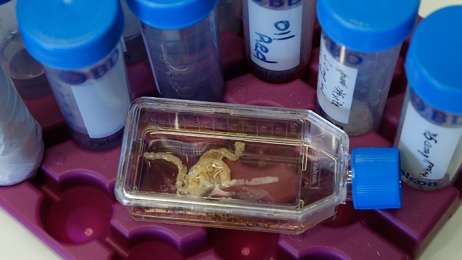Scientists create artificial human sperm, eggs from stem cells

While this process was previously achieved in rats, this is the first time it has been done with humans. The findings were published in the journal `Cell.`
However, the end result was not working sperm and eggs, but so-called germ cells that could potentially mature to become viable for fertility.
“Germ cells are ‘immortal’ in the sense that they provide an enduring link between all generations, carrying genetic information from one generation to the next,” Azim Surani, professor of physiology and reproduction at the University of Cambridge, said in a press release.
In biology, when an egg is fertilized by sperm, it divides into a group of cells called a blastocyst, which then develops into a fetus or the placenta.
Some cells become stem cells, which can then develop into any cell in the body. Some of these will become germ cells, and will then become sperm or eggs.
The scientists identified a gene known as SOX17, which decides which cells become sperm and egg cells. They then harvested these cells by culturing human embryonic stem cells for five days.
However, this doesn’t mean that men and women can donate any cells instead of sperm and eggs when they visit a fertility clinic – but the scientists hope the experiment will shed more light on the study of human genetics.
The research also gives scientists another way to examine how the environment impacts genes, such as how behavioral factors – like smoking and what we eat – can activate or deactivate genes.
The study of how genes are affected by environmental factors is known as epigenetics, and scientists hope it will give them a better understanding of cancer and other age-related illnesses.















































